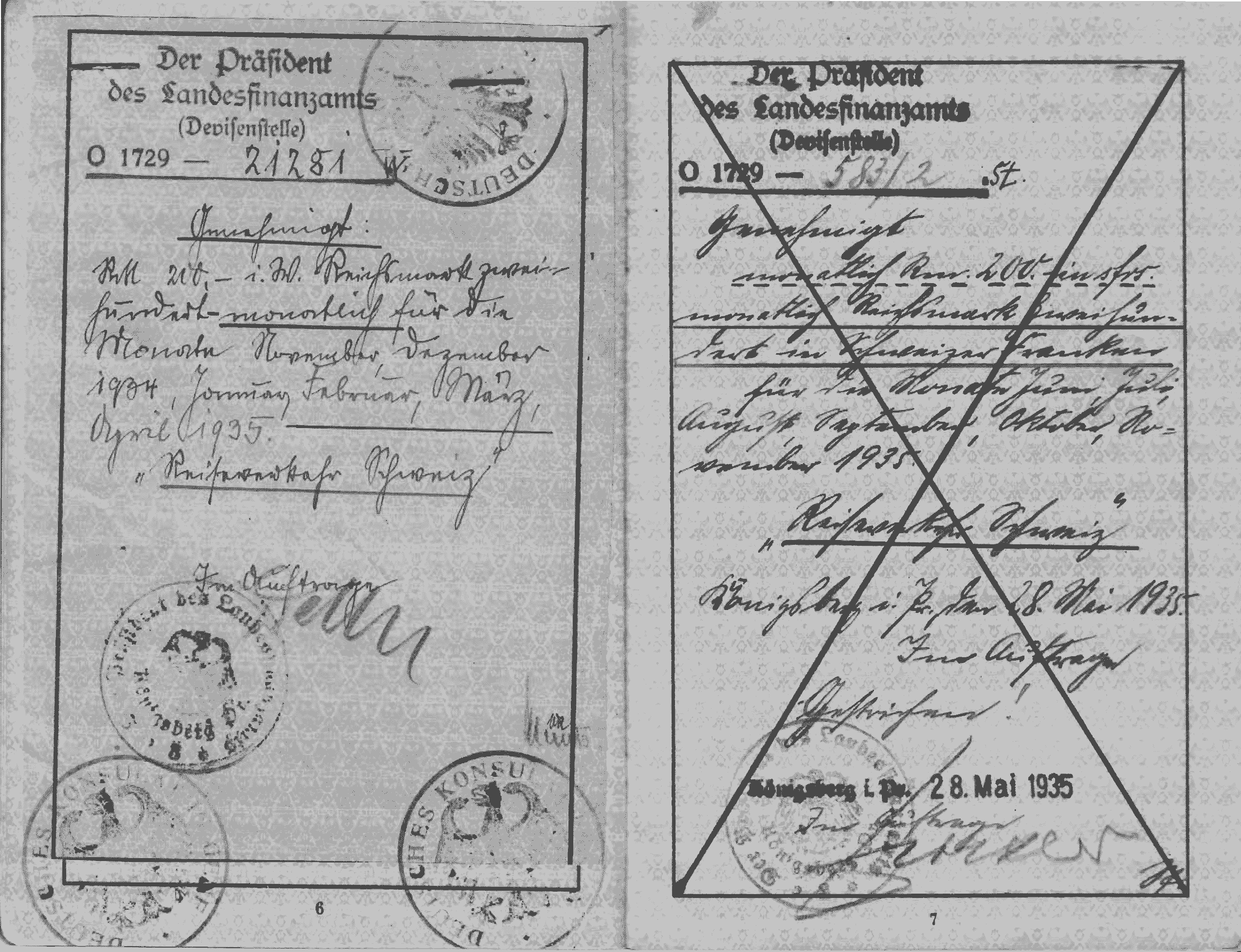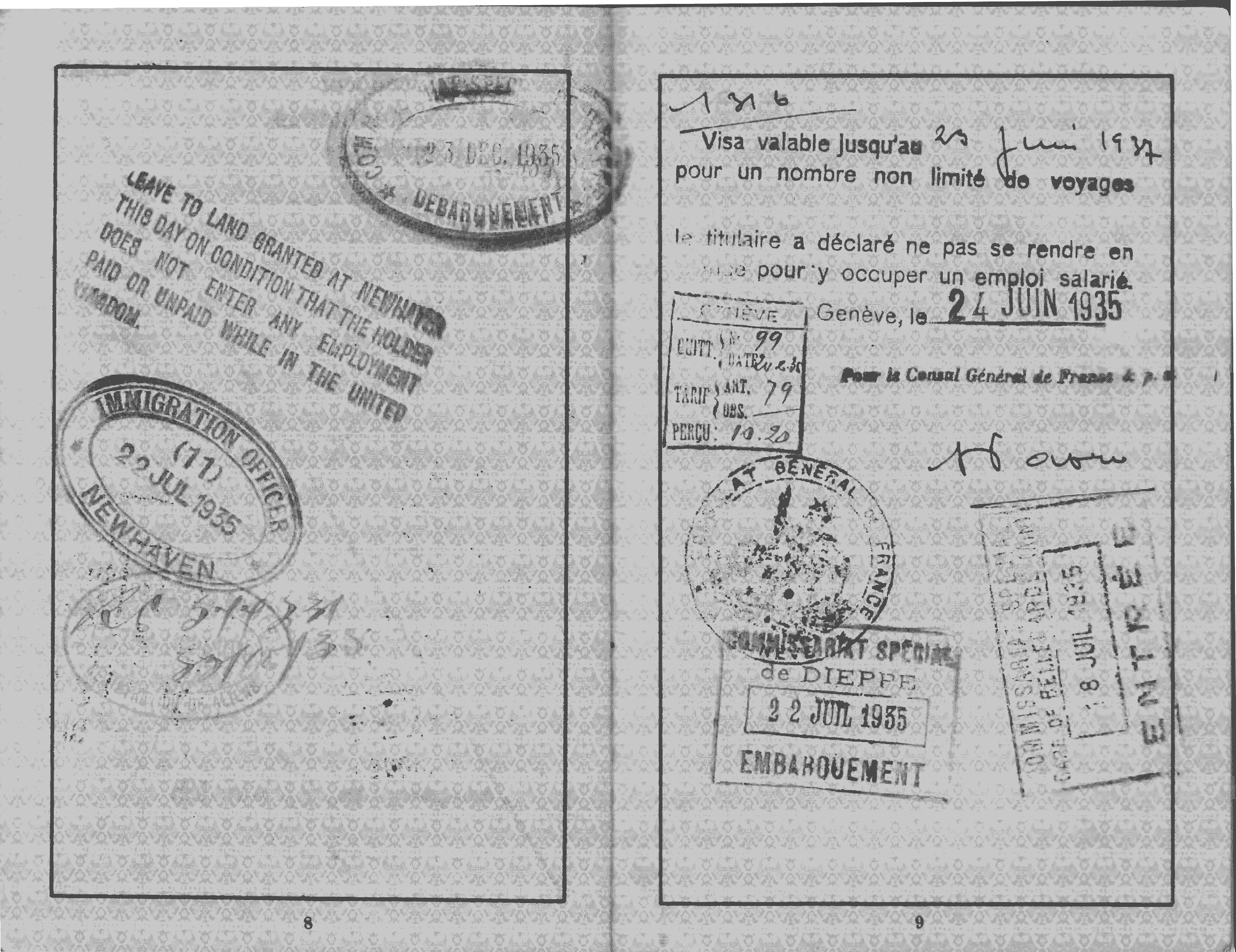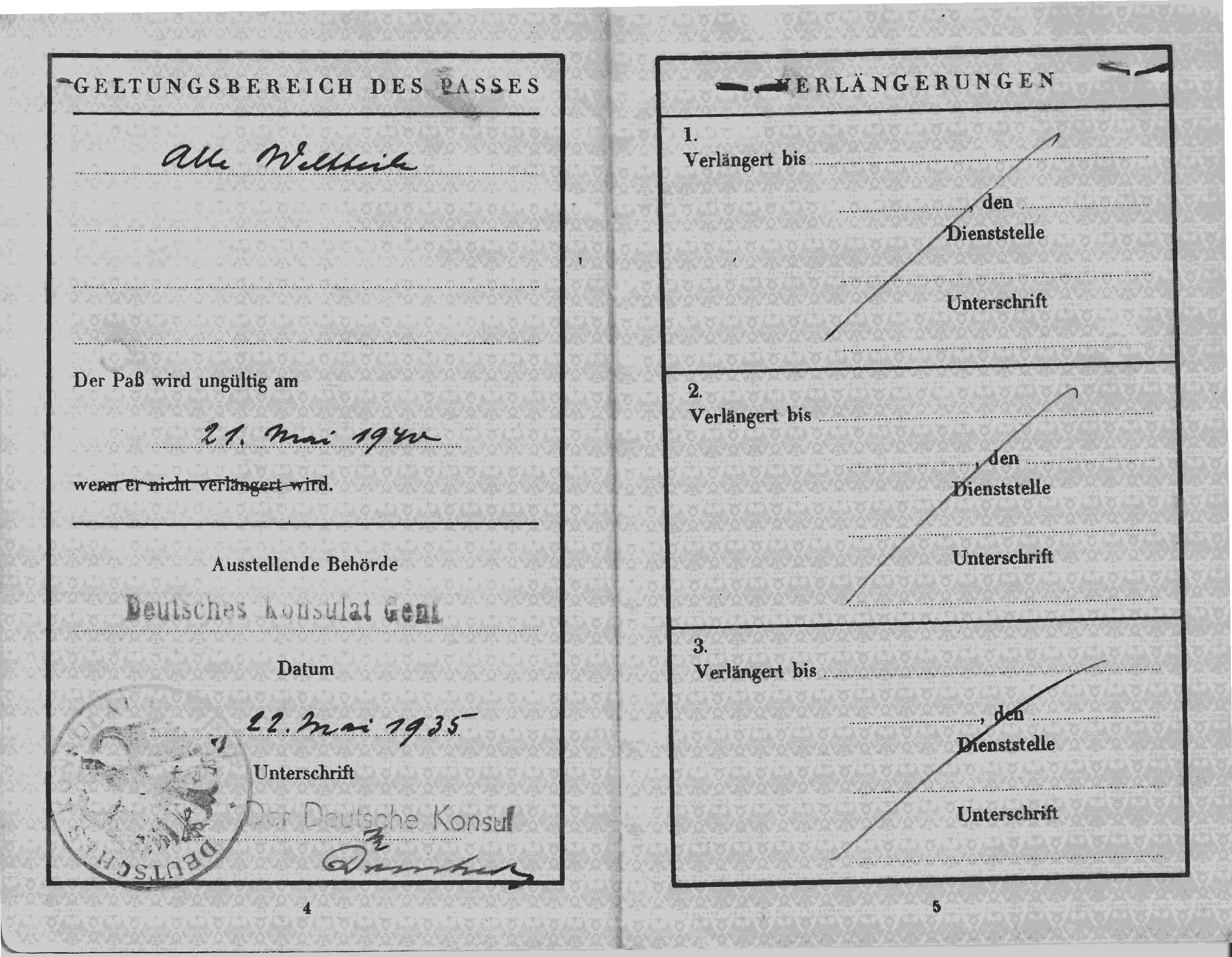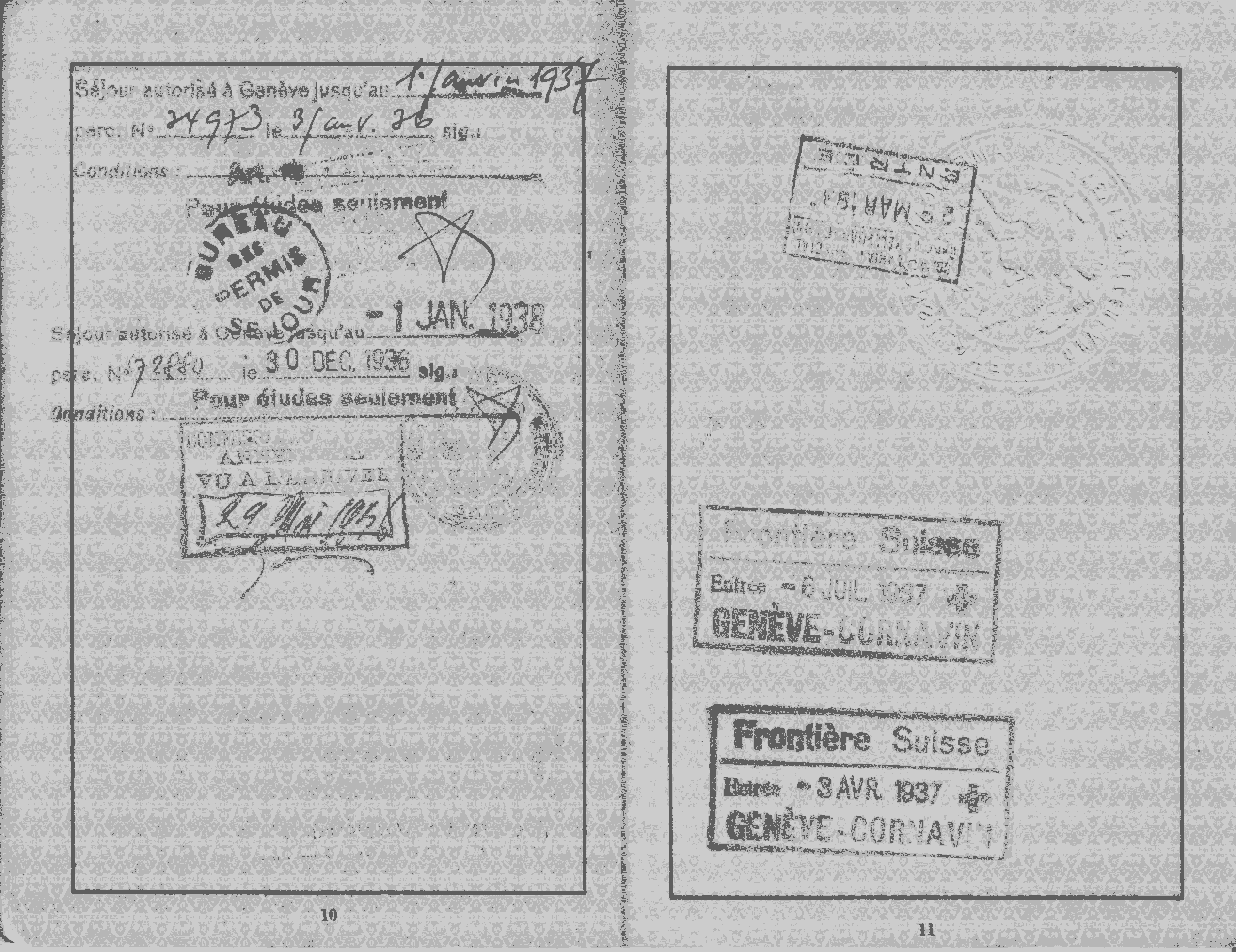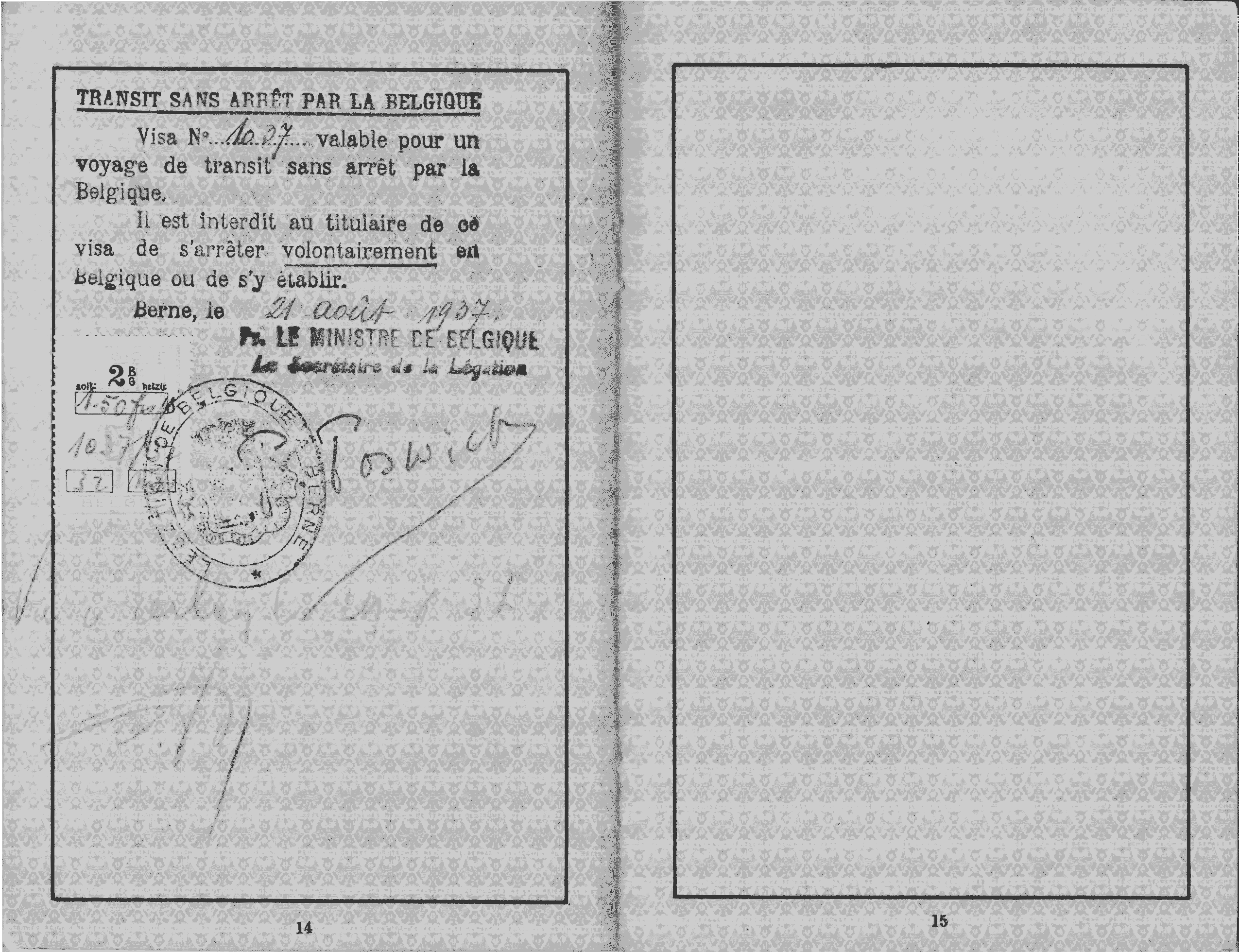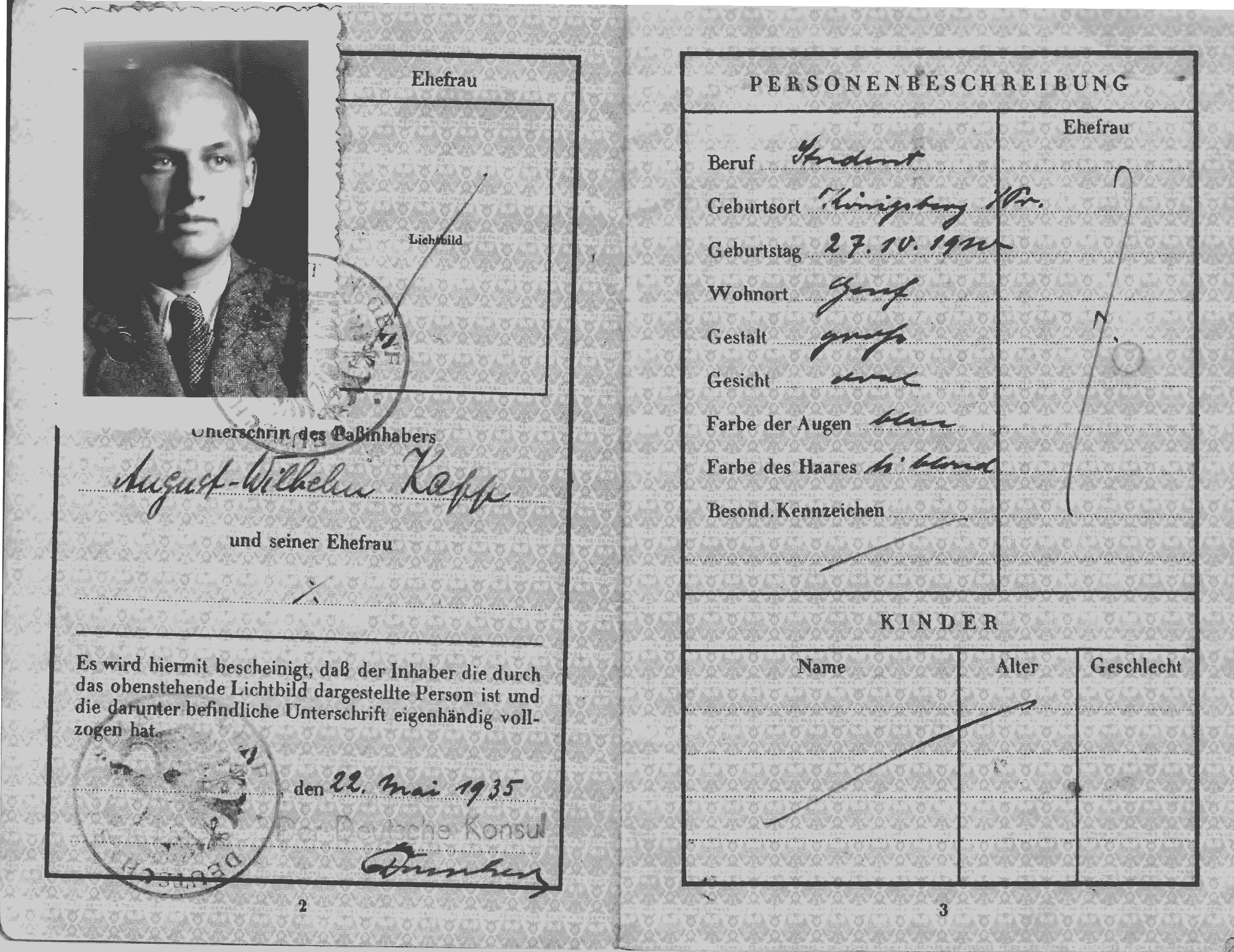Frankfurt & Geneva
1933—1937
Kapp completed the practical second part of the State examination as assistant to the judge at various courts, including that of Frankfurt. When he was denied admission for doctoral studies at Frankfurt University Kapp enrolled at the Graduate Institute of International Studies in Geneva in order to obtain a PhD in Political Sciences. Here he engaged in debates with exiled intellectuals, such as the Frankfurt School’s leading Marxist economist Friedrich Pollock, and the Austrian School’s leading (neo)liberal economist Ludwig von Mises. The latter was one of the supervisors of Kapp’s doctoral studies. His doctoral thesis “The Planned Economy and International Trade” (Kapp 1936) contributes to the Socialist Calculation Debate. He received two dissertational scholarships and undertook a six-months research visit to the London School of Economics in the autumn of 1935.
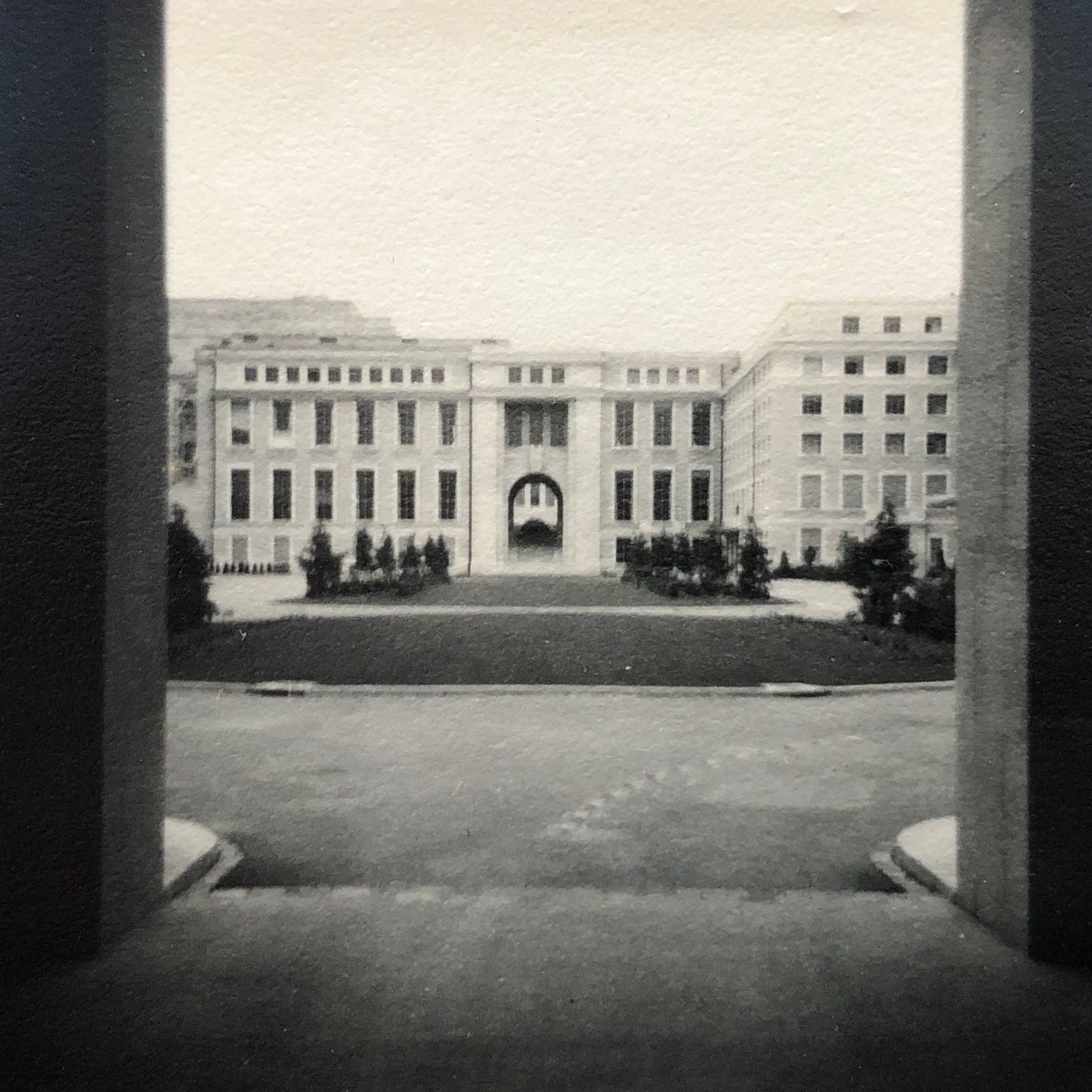
League of Nations
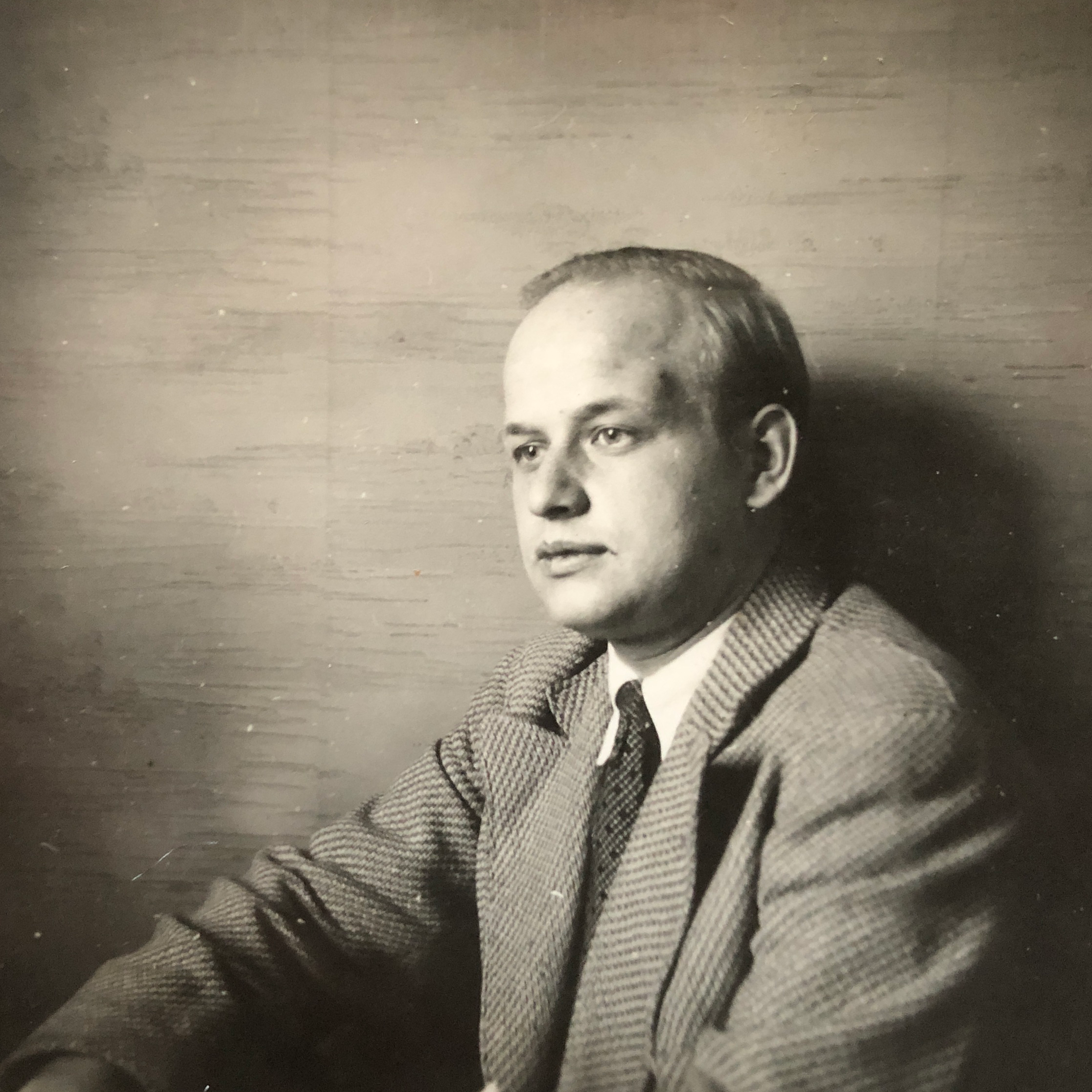
as doctoral student

Sightseeing
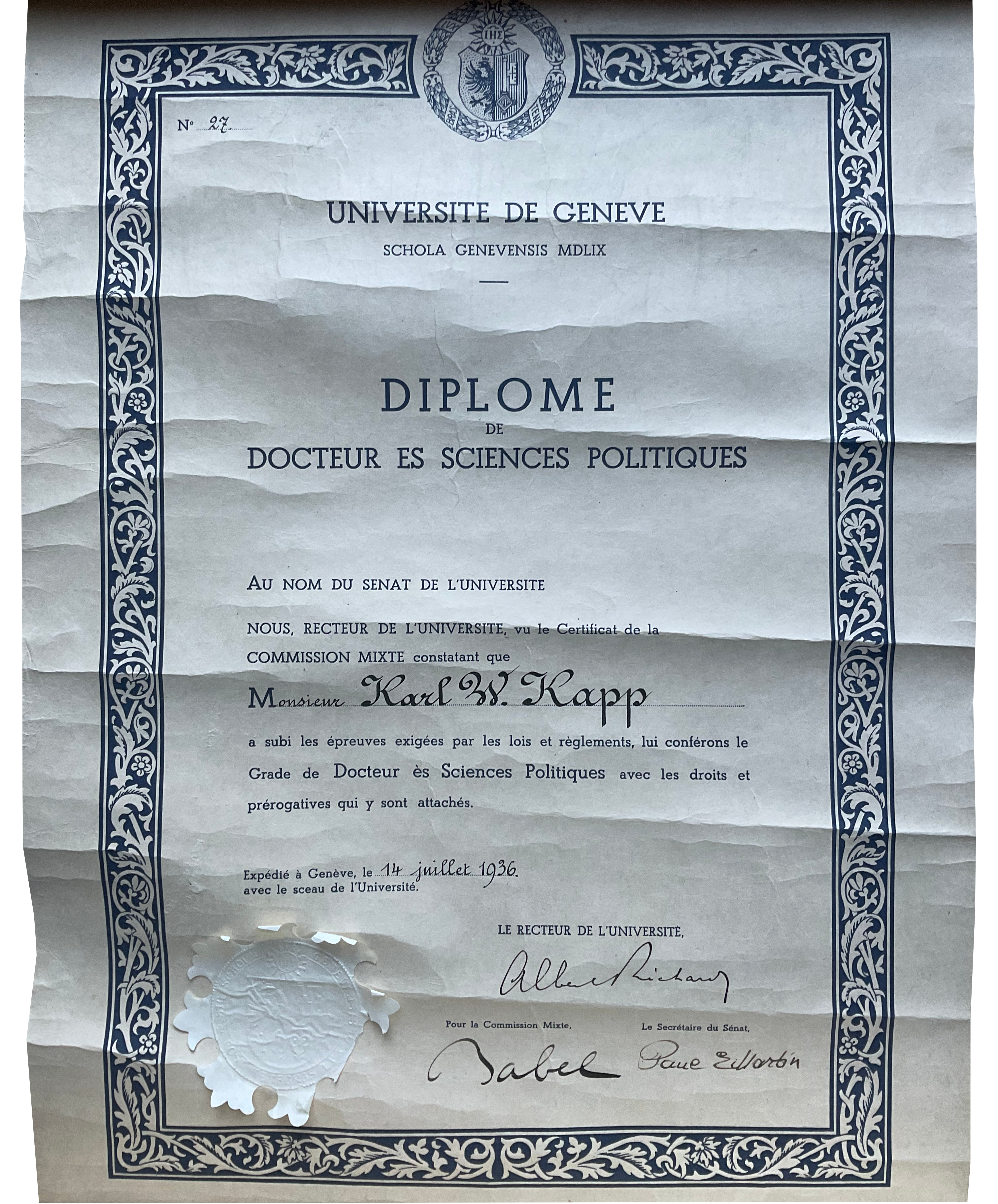
PhD graduation certificate, University of Geneva, 14.7.1936
Kapp’s PhD dissertation counters Mises’ claim that rational allocation is impossible in a centrally planned socialist economy. He does so based on the argument that central planning is based on a “rationality from the perspective of society” based on “social values”. This type of rationality is able to prevent social costs and create social benefits through calculations in kind at the central level. The main part of the dissertation assessed techniques and organizational forms employed for international trade by the Soviet Union, Germany and Persia.
The conclusion states that a planned economy is neither doomed to inefficiency nor autarky because trading techniques based on in-kind calculations can secure the fulfillment of plans. Kapp’s dissertation thus provides support for Otto Neurath’s position that in kind calculations can be a basis for socially rational allocation decisions
.
Another important aspect of Kapp’s dissertation is the formulation of his argument of social costs as a countervailing impossibility thesis to Mises: calculations based on monetary market exchange values do not and cannot factor in social damages. Hence, allocation in a free-market economy is not rational from the perspective of society. On this point, Kapp sides with Carl Menger’s critique that the market economy does not meet the requirements of substantive economy defined as social provisioning for human needs. This stance undergirds Kapp’s argument for preventing social costs through in kind calculations at the central level.
References ︎︎︎
Another important aspect of Kapp’s dissertation is the formulation of his argument of social costs as a countervailing impossibility thesis to Mises: calculations based on monetary market exchange values do not and cannot factor in social damages. Hence, allocation in a free-market economy is not rational from the perspective of society. On this point, Kapp sides with Carl Menger’s critique that the market economy does not meet the requirements of substantive economy defined as social provisioning for human needs. This stance undergirds Kapp’s argument for preventing social costs through in kind calculations at the central level.
References ︎︎︎
While in Geneva, Kapp also worked as translator during the International Labor Conference between 1936 and 1937. He was a research assistant at the Geneva Research Center (Director: Prof. John B. Whitton of Princeton University) and prepared a “Memorandum on the Efforts made by the League of Nations towards a Solution of the Problems of Raw Materials” which was submitted to the 1937 International Studies Conference held in Paris under the auspices of the International Institute for Intellectual Cooperation. Following an invitation to the conference of the International Industrial Relations Institute in the Hague in 1937, Kapp delivered a report on the work of the League of Nations Committee for the study of the problem of Raw Materials at the Study Conference of this Institute.

Translator at the International Labour Office

Working from home

Countryside walk

Countryside walk
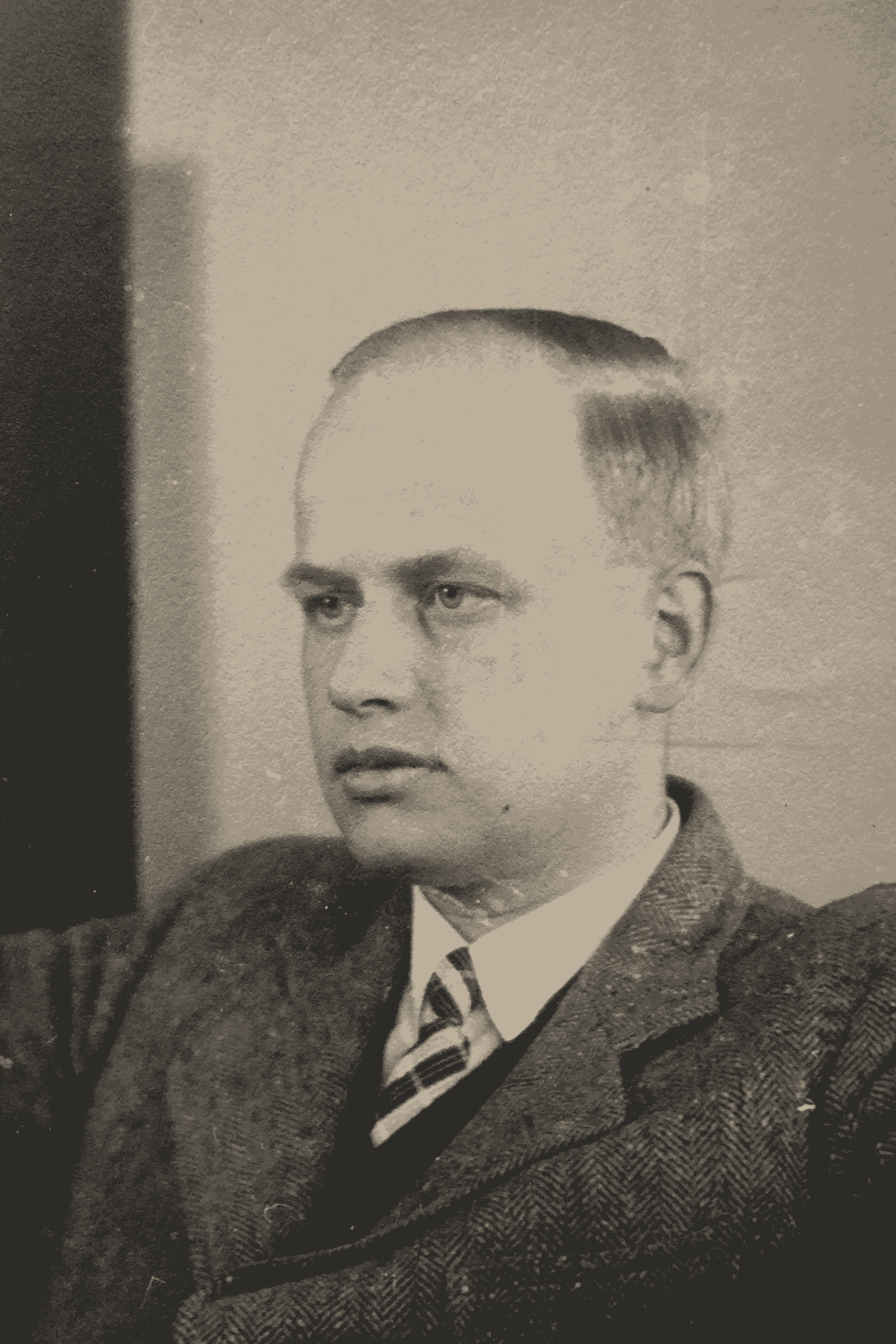
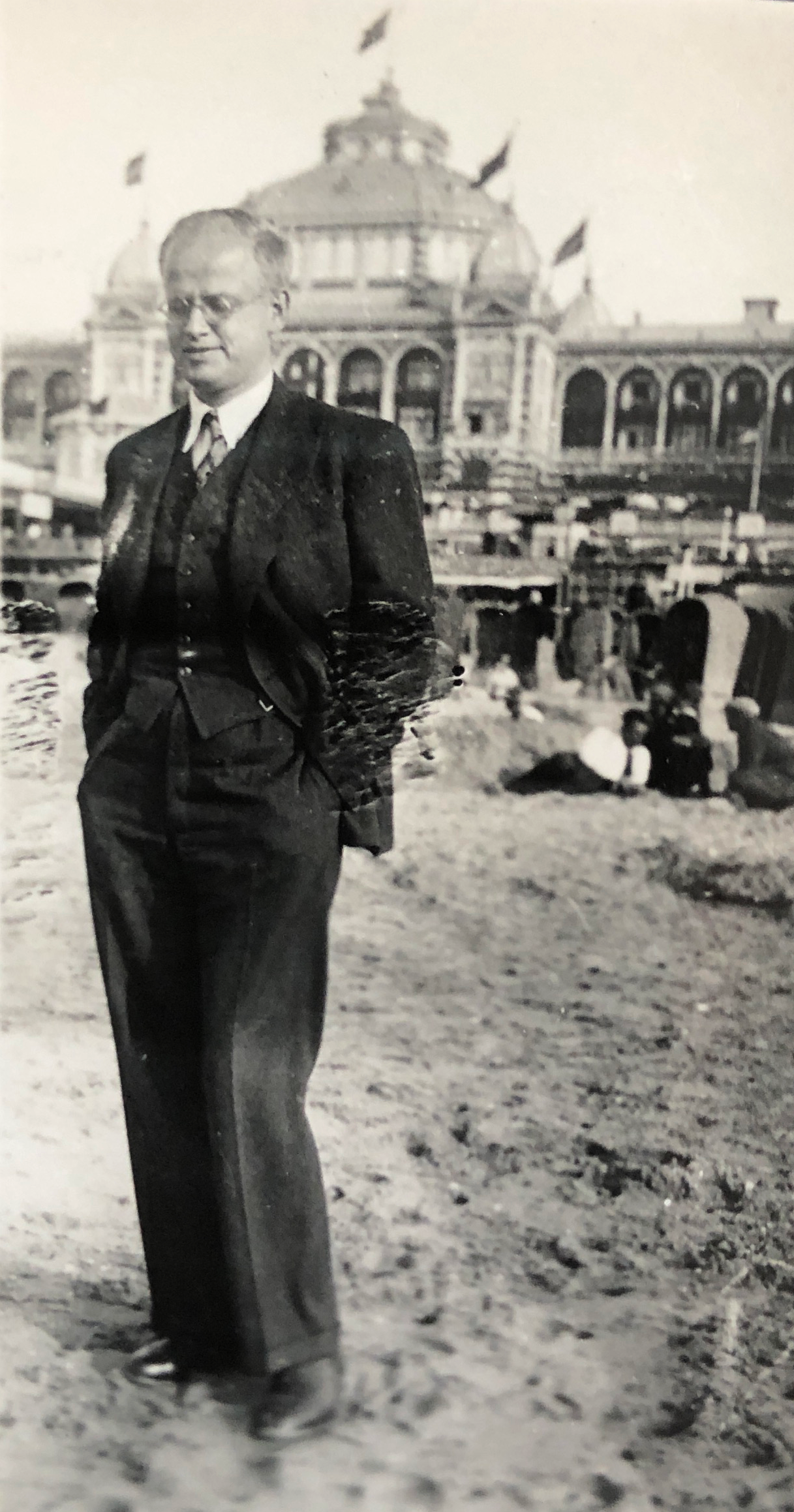
in Scheveningen, Netherlands, just before emigration to the US in September 1937

